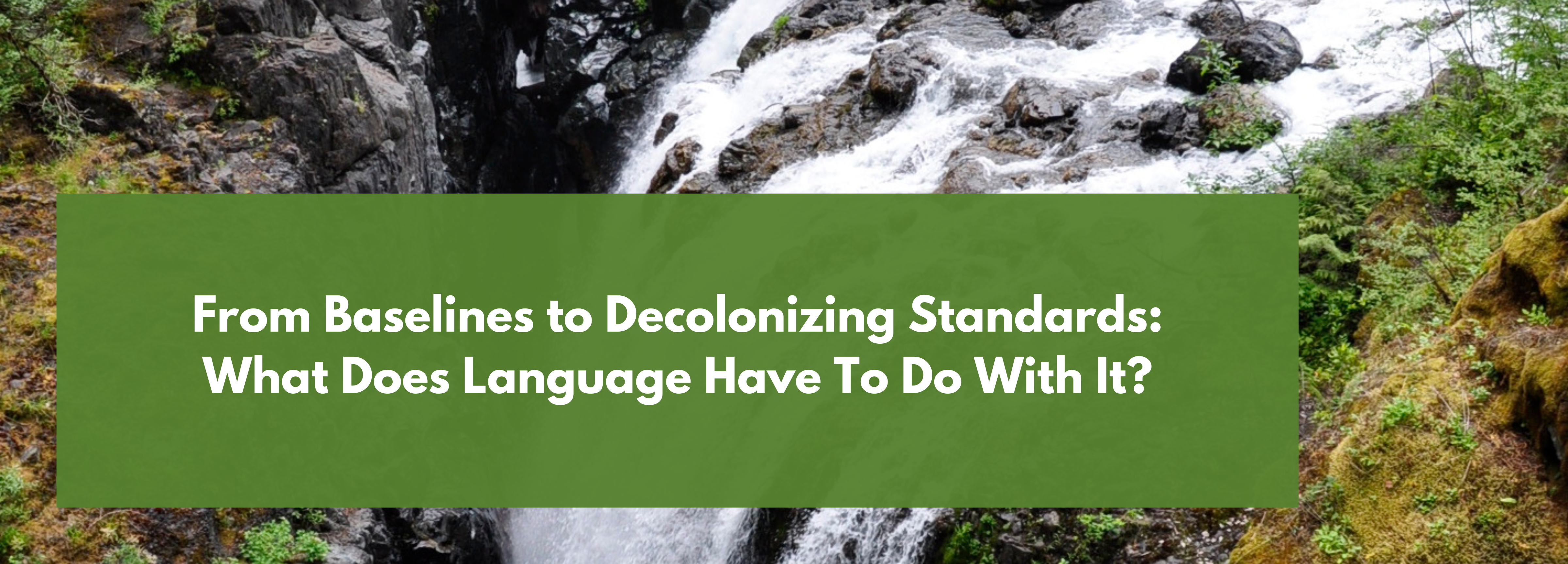
-
Belinda Daniels, Indigenous Education, University of Victoria; with Aracely Aguilera, Language and Literacy Education, UBC; Courtney Collins, Biodiversity Research Centre, UBC; Nina Hewitt, Geography, UBC; Anaïs Orsi, Earth, Ocean and Atmospheric Science, UBC; Serikbolsyn Tastanbek, Language and Literacy Education, UBC; and Meike Wernicke, Language and Literacy Education, UBC
Coach House, Green College, UBC and livestreamed
Wednesday, April 19, 5-6:30pm with reception to followin the series
Unstandardizing Standards: Baselines, Memories and Connections in the Human and Other Natural Sciences -
Building on Part 1 of the series, which explored Professor Daniel Pauly's concept of "shifting baselines" and the creeping, and oft unnoticed, decline in biodiversity over time, Part 2 enters into conversation with Cree scholar and language advocate Professor Belinda Daniels to think about what this shift might mean in the field of Indigenous language revitalization. Belinda Daniels has been a long-time educator and ongoing learner of nehiyawewin, and in 2005 founded the nehiyawak Language Experience in Saskatchewan to revitalize the Cree language with an intensive summer language course for anyone interested in learning Cree. In this session, Green College Leading Scholars invite her to tell us about what led to her effort to revitalize her language, how we may need to think beyond Western understandings of language standardization and toward a holistic conception of language as first and foremost connected to land and community, and what is lost when these relationships to cultural traditions and ways of knowing and being that are carried in language are disrupted through colonial oppression.
The evening will begin with a brief introduction to the conversation with Belinda Daniels by Green College Leading Scholar Meike Wernicke as a way of building a coherent segue between the two events in the series. This will be followed by questions from discussants Anaïs Oris and Nina Hewitt, as well as several invited UBC graduate students. Session participants will be invited to participate and actively reflect on how their own understandings and particular world views with regard to standards and norms.
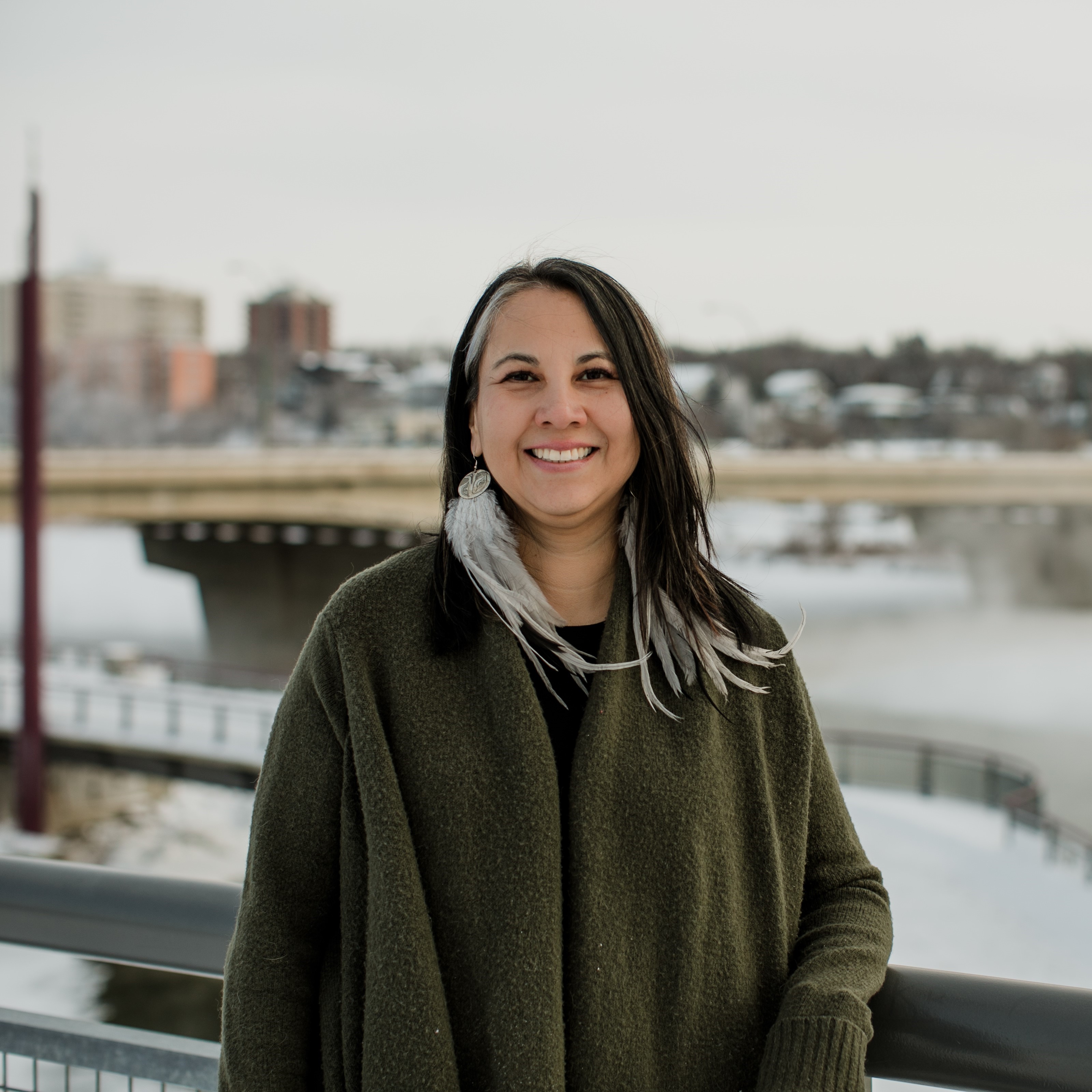 Belinda (kakiyosēw) Daniels is from the community of pakitahwākan sākahikan - Sturgeon Lake First Nation, Saskatchewan. Now a faculty member with the University of Victoria and founder of a not-for-profit organization called nēhiyawak Language Experience. kakiyosēw holds a PhD from the University of Saskatchewan, Interdisciplinary Department. She was awarded the Outstanding Indigenous Educator Award of 2015 by the Canadian Teachers Federation. She has also been recognized by the Federation of Sovereign Indigenous Nations for her exceptional work in Indigenous Language revitalization. Finally, she has also been recognized globally as one of the top 50 finalists for the Global Teacher Prize of 2016. A few projects completed by Dr. Daniels include, at a national level, one for the National Center for Collaboration on Indigenous Education. She co-published a book entitled nēhiyawētan kīkināhk: Speaking Cree in the Home (2022) with colleague Andrea Custer, and then a ‘How to’ guide book for creating a language camp. Belinda is in the midst of co-authoring another book on the topic of learning survival phases for immersion settings in an Indigenous language. kakiyosēw volunteers on several boards including the Foundation for Endangered Languages (FEL Canada), the Canadian Modern Language Editorial Board and is a collaborator and researcher for NETOLNEW, and sits on the Canadian Commission for UNESCO focusing on the Decade of Indigenous Languages. Lastly, Belinda is married and has four children and a new grandchild. kakiyosēw is grateful to be a visitor to the island of Victoria where she lives and works.
Belinda (kakiyosēw) Daniels is from the community of pakitahwākan sākahikan - Sturgeon Lake First Nation, Saskatchewan. Now a faculty member with the University of Victoria and founder of a not-for-profit organization called nēhiyawak Language Experience. kakiyosēw holds a PhD from the University of Saskatchewan, Interdisciplinary Department. She was awarded the Outstanding Indigenous Educator Award of 2015 by the Canadian Teachers Federation. She has also been recognized by the Federation of Sovereign Indigenous Nations for her exceptional work in Indigenous Language revitalization. Finally, she has also been recognized globally as one of the top 50 finalists for the Global Teacher Prize of 2016. A few projects completed by Dr. Daniels include, at a national level, one for the National Center for Collaboration on Indigenous Education. She co-published a book entitled nēhiyawētan kīkināhk: Speaking Cree in the Home (2022) with colleague Andrea Custer, and then a ‘How to’ guide book for creating a language camp. Belinda is in the midst of co-authoring another book on the topic of learning survival phases for immersion settings in an Indigenous language. kakiyosēw volunteers on several boards including the Foundation for Endangered Languages (FEL Canada), the Canadian Modern Language Editorial Board and is a collaborator and researcher for NETOLNEW, and sits on the Canadian Commission for UNESCO focusing on the Decade of Indigenous Languages. Lastly, Belinda is married and has four children and a new grandchild. kakiyosēw is grateful to be a visitor to the island of Victoria where she lives and works.
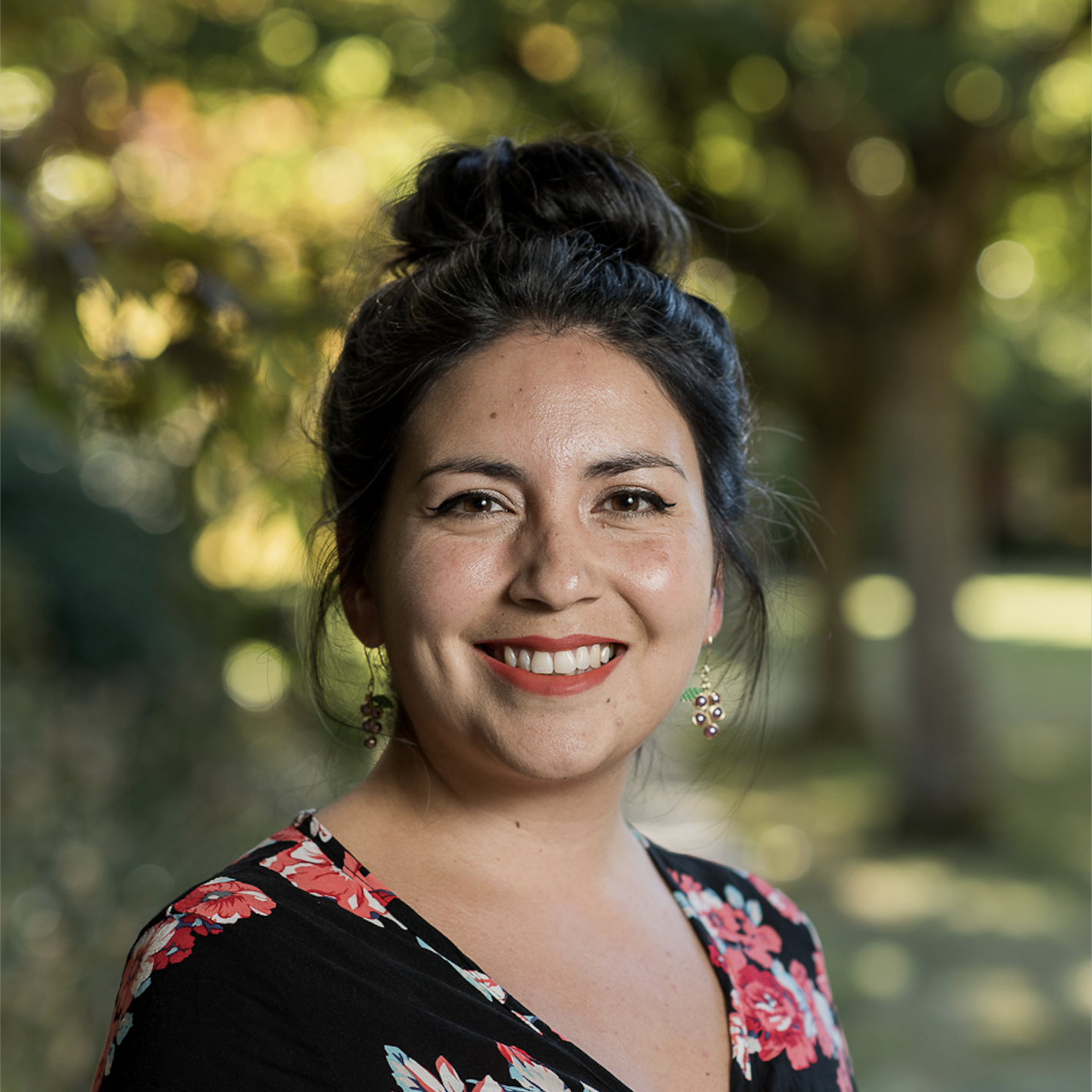 Aracely Aguilera is a first-year PhD student in Language and Literacy Education at UBC. She is Latina, Aymara, and was born and raised in Chile. As an emergent scholar and practitioner, her graduate studies in English Linguistics, Educational Technologies and Higher Education have led her to explore novice English language teachers in Chile's school system, their attitudes and strategies for improving technological inclusion for motivational purposes. She has worked as a language coordinator and taught English for Specific Purposes at different universities in Chile. Her doctoral research interests lie in exploring English language university instructors’ critical digital literacies from a feminist post-humanist lens to shed light on the intricacies of intercultural competencies in decolonial and neoliberal language learning through digital technologies.
Aracely Aguilera is a first-year PhD student in Language and Literacy Education at UBC. She is Latina, Aymara, and was born and raised in Chile. As an emergent scholar and practitioner, her graduate studies in English Linguistics, Educational Technologies and Higher Education have led her to explore novice English language teachers in Chile's school system, their attitudes and strategies for improving technological inclusion for motivational purposes. She has worked as a language coordinator and taught English for Specific Purposes at different universities in Chile. Her doctoral research interests lie in exploring English language university instructors’ critical digital literacies from a feminist post-humanist lens to shed light on the intricacies of intercultural competencies in decolonial and neoliberal language learning through digital technologies.
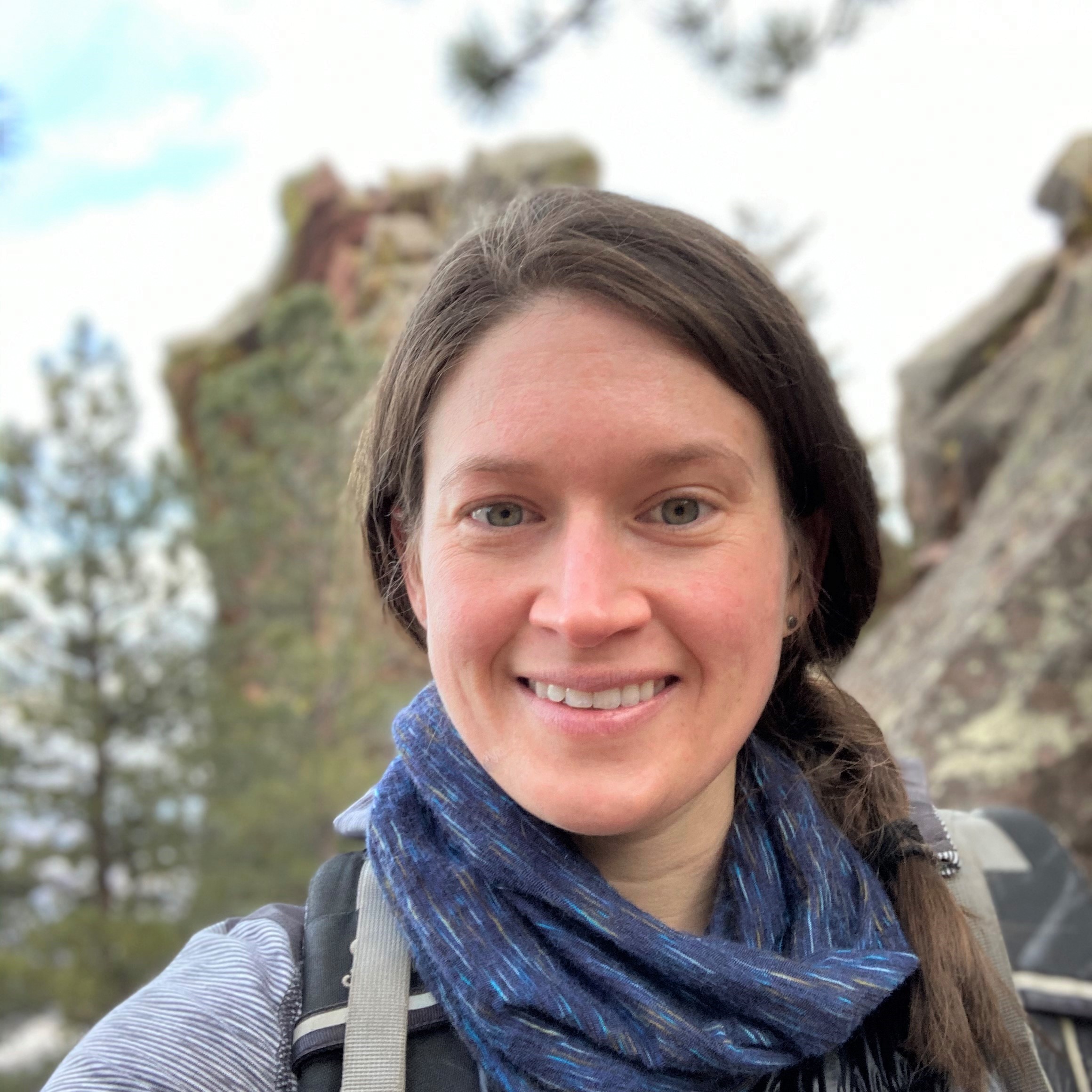 Courtney Collins is a plant community and ecosystem ecologist studying the effects of global change on terrestrial ecosystems. Her research interests include alpine ecology, global change biology, plant-soil feedbacks, species range shifts and species interactions. She is originally a Florida native, and completed her undergraduate degree in Environmental Sciences at the University of Florida and her Master's in Conservation Ecology at the University of Georgia. After this, she traveled west for her PhD in Plant Biology at UC Riverside studying the above and belowground dynamics of woody plant range expansions. She since has had two postdoctoral fellowships, one at CU Boulder in the Institute of Arctic and Alpine Research and finally at UBC (current position) in the Biodiversity Research Centre. Her postdoctoral research has focused on alpine and Arctic tundra plant community responses to warming including her most recent project in Garibaldi Provincial Park as part of the BC Parks Living Labs for Climate Change program. She has had a long journey to Canada and BC, but has absolutely fallen in love with the local ecosystems and is so excited to call this place home!
Courtney Collins is a plant community and ecosystem ecologist studying the effects of global change on terrestrial ecosystems. Her research interests include alpine ecology, global change biology, plant-soil feedbacks, species range shifts and species interactions. She is originally a Florida native, and completed her undergraduate degree in Environmental Sciences at the University of Florida and her Master's in Conservation Ecology at the University of Georgia. After this, she traveled west for her PhD in Plant Biology at UC Riverside studying the above and belowground dynamics of woody plant range expansions. She since has had two postdoctoral fellowships, one at CU Boulder in the Institute of Arctic and Alpine Research and finally at UBC (current position) in the Biodiversity Research Centre. Her postdoctoral research has focused on alpine and Arctic tundra plant community responses to warming including her most recent project in Garibaldi Provincial Park as part of the BC Parks Living Labs for Climate Change program. She has had a long journey to Canada and BC, but has absolutely fallen in love with the local ecosystems and is so excited to call this place home!
 Nina Hewitt is an Associate Professor of Teaching in Geography, UBC and a biogeographer specializing in plant dispersal, migration and disturbance ecology in temperate forests and alpine ecosystems, with research in Ontario, BC and the Karakoram-Himalaya. She is interested in human impacts associated with ecosystem fragmentation, altered disturbance regimes, introduced invasive species and climate change, and how to manage these impacts. She also researches and develops digital tools for experiential field learning, including virtual and augmented reality tours of alpine, forest and other ecosystems that bring the field to the student (virtual reality) or the student to the field (augmented reality) and complement my own ecological research.
Nina Hewitt is an Associate Professor of Teaching in Geography, UBC and a biogeographer specializing in plant dispersal, migration and disturbance ecology in temperate forests and alpine ecosystems, with research in Ontario, BC and the Karakoram-Himalaya. She is interested in human impacts associated with ecosystem fragmentation, altered disturbance regimes, introduced invasive species and climate change, and how to manage these impacts. She also researches and develops digital tools for experiential field learning, including virtual and augmented reality tours of alpine, forest and other ecosystems that bring the field to the student (virtual reality) or the student to the field (augmented reality) and complement my own ecological research.
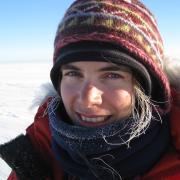 Anaïs Orsi is an Assistant Professor, Earth, Ocean and Atmospheric Science, UBC, and a polar climate scientist. Today, the Arctic is the region that is warming the most in the whole planet, but we do not have direct measurements of what the preindustrial climate was in vast areas of this largely un-inhabited region. Her work is about finding clues in the natural environment to reconstruct past climates so that we can understand what polar environments looked like before the recent warming period. The tools can be esoteric but the aim is clear: What is the baseline that we measure climate "change" from?
Anaïs Orsi is an Assistant Professor, Earth, Ocean and Atmospheric Science, UBC, and a polar climate scientist. Today, the Arctic is the region that is warming the most in the whole planet, but we do not have direct measurements of what the preindustrial climate was in vast areas of this largely un-inhabited region. Her work is about finding clues in the natural environment to reconstruct past climates so that we can understand what polar environments looked like before the recent warming period. The tools can be esoteric but the aim is clear: What is the baseline that we measure climate "change" from?
.jpg) Serikbolsyn Tastanbek is a PhD student in Teaching English as a Second Language at the Department of Language and Literacy Education, UBC. Before coming to Canada, he worked in Qazaqstan as a teacher of English as an additional language, and English for academic and specific purposes. Situated within critical applied linguistics, his research focuses on translanguaging, language ideologies and critical pedagogies.
Serikbolsyn Tastanbek is a PhD student in Teaching English as a Second Language at the Department of Language and Literacy Education, UBC. Before coming to Canada, he worked in Qazaqstan as a teacher of English as an additional language, and English for academic and specific purposes. Situated within critical applied linguistics, his research focuses on translanguaging, language ideologies and critical pedagogies.
.jpg) Meike Wernicke is an Assistant Professor and settler scholar in Language and Literacy Education at UBC. Her research is situated at the intersection of teacher education and language learning and teaching. In her work she focuses on the ideological and discursive workings of language, culture and educational policy, and the impact of these on the identities and practices of language learners and teachers. Her work involves drawing on critical perspectives and decolonizing approaches to examine how we can prioritize equitable language practices in both initial teacher education and teacher professional learning.
Meike Wernicke is an Assistant Professor and settler scholar in Language and Literacy Education at UBC. Her research is situated at the intersection of teacher education and language learning and teaching. In her work she focuses on the ideological and discursive workings of language, culture and educational policy, and the impact of these on the identities and practices of language learners and teachers. Her work involves drawing on critical perspectives and decolonizing approaches to examine how we can prioritize equitable language practices in both initial teacher education and teacher professional learning.
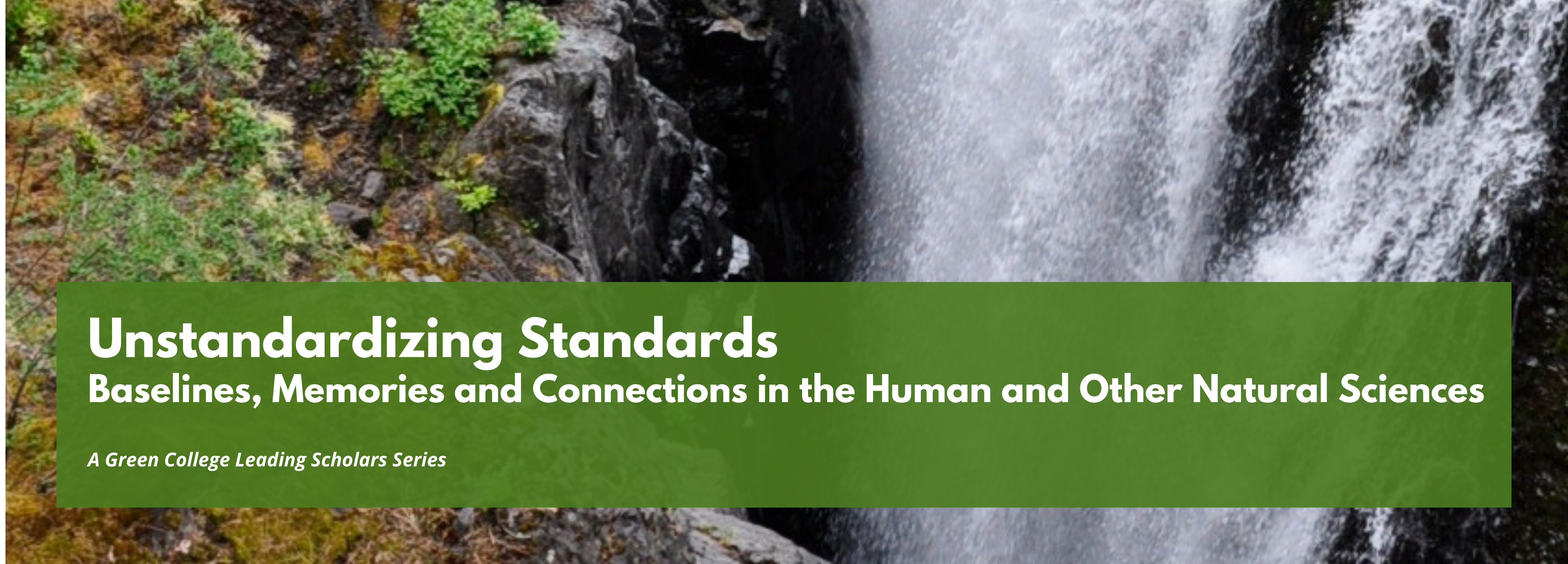
This Leading Scholars Series considers baselines, how they may be shaped by or inform memories and how they relate to disciplinary standards. Discussion will focus on how these baselines restore or revitalize our environment and ways of knowing, enhancing our understanding of diversity (ecological, linguistic, etc.), and providing a means to confront and heal memory interruptions through research and education. Each session presents a story that spans different perspectives in order to engage with concepts across disciplines.
Series Conveners: Nina Hewitt, Geography; AnaÏs Orsi, Earth, Ocean and Atmospheric Science; and Meike Wernicke, Language and Literacy Education.

-
Unless otherwise noted, all of our lectures are free to attend and do not require registration.
6201 Cecil Green Park Rd
Green College, UBC
Vancouver, BC V6T 1Z1
Canada
Custom Lecture Fields
|